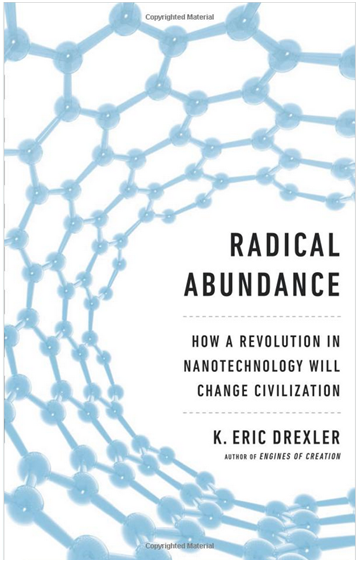 Book review by José Luis Cordeiro: Eric Drexler, popularly known as “the founding father of nanotechnology,” introduced the concept in his seminal 1981 paper in Proceedings of the National Academy of Sciences.
Book review by José Luis Cordeiro: Eric Drexler, popularly known as “the founding father of nanotechnology,” introduced the concept in his seminal 1981 paper in Proceedings of the National Academy of Sciences.This paper established fundamental principles of molecular engineering and outlined development paths to advanced nanotechnologies.
He popularized the idea of nanotechnology in his 1986 book, Engines of Creation: The Coming Era of Nanotechnology, where he introduced a broad audience to a fundamental technology objective: using machines that work at the molecular scale to structure matter from the bottom up.
He went on to continue his PhD thesis at MIT, under the guidance of AI-pioneer Marvin Minsky, and published it in a modified form as a book in 1992 as Nanosystems: Molecular Machinery, Manufacturing, and Computation.
Drexler’s new book, Radical Abundance: How a Revolution in Nanotechnology Will Change Civilization, tells the story of nanotechnology from its small beginnings, then moves quickly towards a big future, explaining what it is and what it is not, and enlightening about what we can do with it for the benefit of humanity.
In his pioneering 1986 book, Engines of Creation, he defined nanotechnology as a potential technology with these features: “manufacturing using machinery based on nanoscale devices, and products built with atomic precision.”
In his 2013 sequel, Radical Abundance, Drexler expands on his prior thinking, corrects many of the misconceptions about nanotechnology, and dismisses fears of dystopian futures replete with malevolent nanobots and gray goo…
His new book clearly identifies nanotechnology with atomically precise manufacturing (APM)…Drexler makes many comparisons between the information revolution and what he now calls the “APM revolution.” What the first did with bits, the second will do with atoms: “Image files today will be joined by product files tomorrow. Today one can produce an image of the Mona Lisa without being able to draw a good circle; tomorrow one will be able to produce a display screen without knowing how to manufacture a wire.”
Civilization, he says, is advancing from a world of scarcity toward a world of abundance — indeed, radical abundance.”
